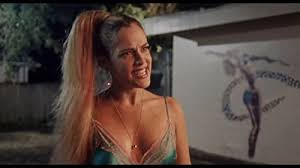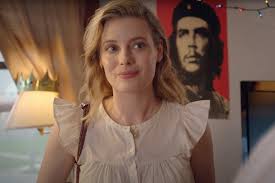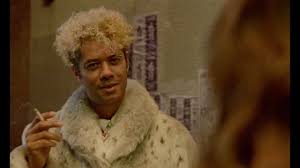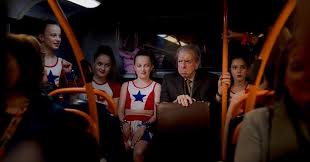Primetime Emmy winner for Best Made for TV Movie, this is an enjoyable tale of embezzlement in a Long Island High School early this century.
Frank Tassone, the superintendent of the school is a vain but successful manager.
He and his administrative chief Pamela Glucklin use the school credit card as a personal card, siphoning money off to their own personal accounts and to the benefit of relatives.
Nobody minds while the school is so successful and helping real estate prices in the area to balloon.

Until Rachel (Geraldine Viswanathan), a reporter on the school paper and part of the school board/office both start to suspect something.
Frank goes into damage control, not very successfully and Pam is fired. But the snowball is still rolling.
Based on a true story, Cory Finley constructs an entertaining film which is an allegory for corruption in other contexts.
Hugh Jackman and Allison Janney are very convincing in the main roles.
4 stars
















































































